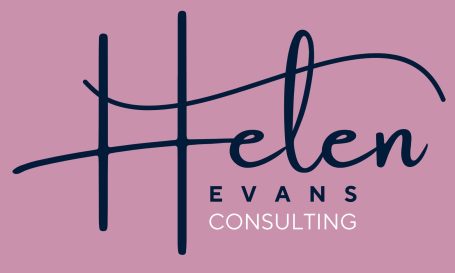Helen's Story

Oxfam Whistleblowing: In 2012, as Head of Safeguarding at Oxfam GB, Helen Evans began uncovering widespread sexual abuse within the organization. She repeatedly raised concerns with Oxfam leadership, the Charity Commission, and her MP, but in a pre-#MeToo world, her warnings went unheard. In 2018, an exposé by The Times journalist Sean O'Neill brought the Oxfam scandal to global attention, exposing sexual exploitation in Haiti by Oxfam aid workers and finally validating Helen's efforts.
The revelations came at a personal cost: backlash for speaking out forced her family to relocate, and she was left with PTSD, compounded by seven years of work in conflict zones. Despite these challenges, Helen testified before MPs and the Charity Commission, driving significant reforms in charity safeguarding. Her courage and determination earned her the prestigious UK Whistleblower Award.

Neurodivergent Leadership: After leaving Oxfam, Helen embarked on a deeply personal journey, fighting to secure the support her autistic and ADHD son needed. This experience led to her own late diagnosis of autism, sparking an interest in the connection between autism and whistleblowing. She began questioning whether autistic people are more likely to speak up about wrongdoing - a theory now supported by emerging research.
Helen has since led several UK charities, becoming one of the few openly autistic CEOs in the sector. She shares her experiences as an Autistic leader through blogs and podcasts, and her story features in the award-winning film When We Speak. The documentary highlights the courage and challenges of three women whistleblowers, featuring Rose McGowan, Katharine Gun and Helen.

Present Day: Currently the CEO of Cavernoma Alliance UK, a rare disease charity, Helen is a sought-after speaker on whistleblowing and autistic leadership, with appearances on BBC Radio 4’s Woman’s Hour, The Bottom Line, and other major programmes. Her keynote speaking engagements have included The Marketing Society, the Bravest Conference, the IGPP Annual Progressing Neurodiversity Conference, and other prestigious events.
She balances her part-time CEO role with keynote speaking, media contributions, and consultancy work. A graduate of Durham University, where she earned a Philosophy Master’s specializing in Applied Ethics, Helen lives in Oxfordshire with her son and labradoodle. If you'd like to collaborate with Helen, click here to get in touch.
Oxfam Scandal: A Wider Crisis in the Aid Sector

The Oxfam scandal gained global attention in 2018 when The Times journalist Sean O'Neill revealed widespread sexual exploitation and abuse (SEA) within the organization. However, these revelations were part of a much larger, longstanding problem across the aid sector. Reports of SEA by aid workers date back to a 2002 UNHCR/Save the Children report, which uncovered abuse by 40 agencies in West Africa. Despite various efforts, including a 2010 global review, safeguarding measures were often described as “patchy, poor, or non-existent.”
Helen Evans, who had worked for Oxfam GB since 2008 in the Middle East and CIS regions, became Head of Safeguarding in 2012 and worked to address these systemic failures. She introduced Oxfam’s first safeguarding strategy, which included investigator training, establishing safeguarding focal points in global programs, and improving reporting systems. These efforts revealed the true scale of the problem: SEA reports rose from 12 in 2011-12 to 87 in 2016-17, indicating significant underreporting in earlier years.

The cases uncovered ranged from inappropriate behavior to serious crimes such as rape and child abuse. In 2014, an Oxfam GB staff survey found over 10% of respondents in certain programs had witnessed or experienced SEA, including 7% reporting rape. Helen repeatedly raised these issues with Oxfam leadership, trustees, the Charity Commission, and MPs, warning that the organization lacked adequate resources and commitment to address SEA. Despite her efforts, her warnings were largely ignored.
Following the 2018 exposé, Helen played a key role in the resulting investigations. She collaborated with other #AidToo whistleblowers and survivors to push for sector-wide reform and provided critical testimony as an expert witness to both the Charity Commission's inquiry and the International Development Committee’s inquiry into SEA in the aid sector.
Her contributions were instrumental in driving change, leading to the Charity Commission’s report on Oxfam’s failings and recommendations for improvement. Helen’s advocacy continues to emphasize the urgent need for accountability, transparency, and effective safeguarding to protect vulnerable populations and rebuild trust in humanitarian organizations.
If you are a researcher seeking more information about the Oxfam scandal, you’ll find useful links provided below to key resources, reports, and articles. We encourage you to review these materials as they address many aspects of the issue. If you still have questions after reading, please feel free to get in touch. Helen will do her best to respond and assist with your inquiry.
Useful Links
- The Times, Sean O’Neill 09.02.18
- The Times, Helen Evans 05.03.18
- The Times, Helen Evans 12.06.19
- Select Committee, Helen's written evidence
- Select Committee, Helen's oral evidence
- Government Report, SEA in the Aid Sector
- Government Report, Follow-up on SEA
- Charity Commission Report, Oxfam GB
- Charity Commission Report, Save the Children
- Safeguarding Resource & Support Hub
- NGO Safe Space #AidToo
Helen Evans does not offer safeguarding consultancy services. For a comprehensive list of safeguarding consultants, please refer to the Safeguarding Resource & Support Hub.
© 2025 Helen Evans Consulting. All rights reserved.
We need your consent to load the translations
We use a third-party service to translate the website content that may collect data about your activity. Please review the details in the privacy policy and accept the service to view the translations.
